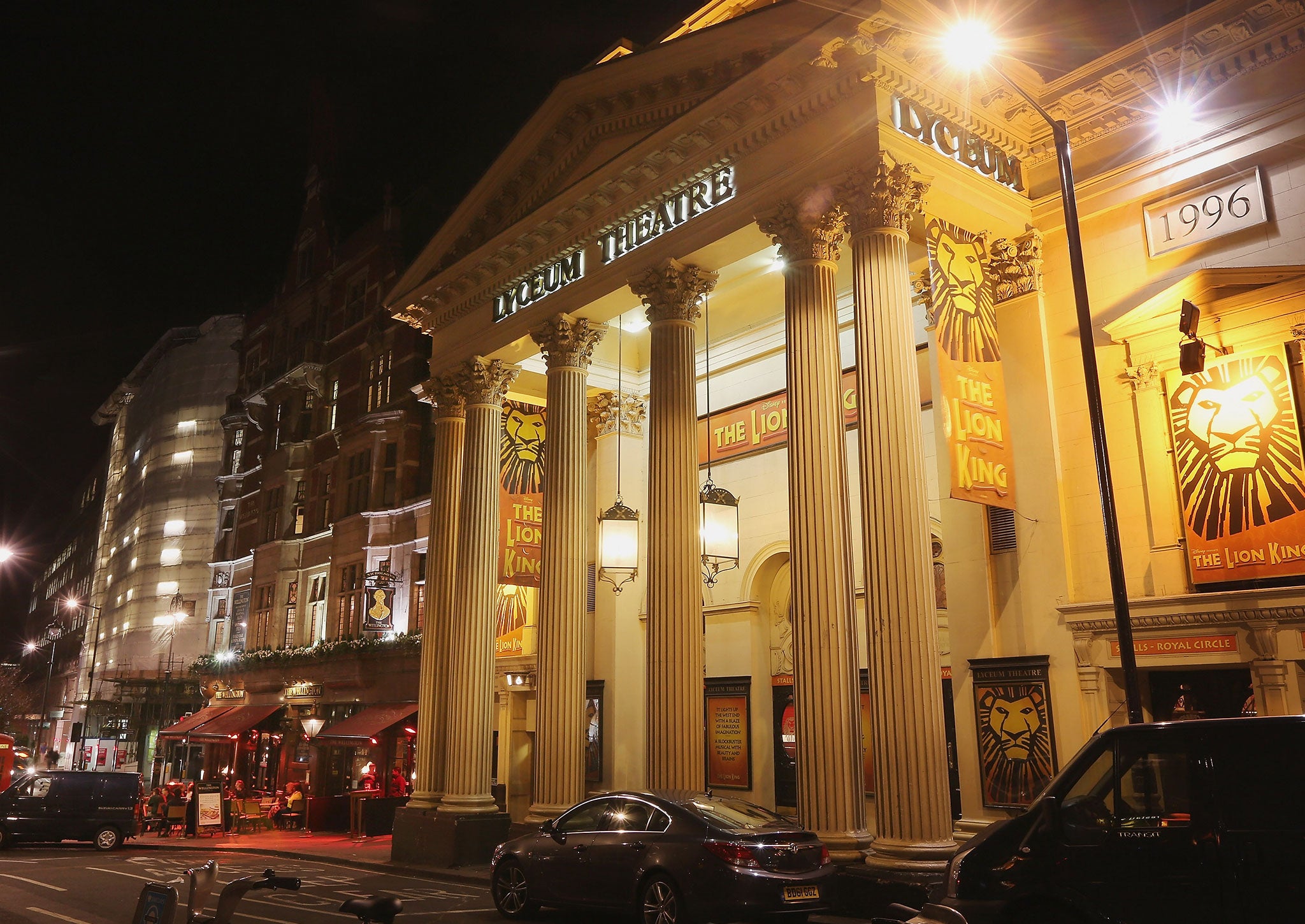The West End might be beating Broadway, but think about who it is that can afford to fill the seats
High ticket prices are preventing many others from enjoying the show

So our London theatres are outdoing their rivals over the pond. Just. According to the Society of London Theatre, 22 million people bought tickets to shows in the Big Smoke in 2013, compared to 15 million on Broadway, and fewer than seven million elsewhere in New York.
Let’s not get too triumphal; we’ve only just managed to claw ahead. Although Nick Allott, the managing director of the Cameron Mackintosh theatre empire, also says Londoners enjoy shorter queues for the lavatories in the West End.
Actually, you can say anything about the West End, be it tickets, audiences, plays or indeed, lavatories, and stand it up. When I was on the arts beat at the BBC, it was something of a game one could play with (say) the editor of the Today programme.
The cry was typically thus: “Millard! Is the West End dying? We need a story about the West End suffering from recession/illiteracy/parking restrictions/supermarket opening hours” (select at will).
Or “Millard! Is the West End flourishing? We need a story about the invasion of American television stars/Andrew Lloyd Webber/Cameron Mackintosh/all three.” And the story would be researched and lo! It would be found to be thus.
The pleasing truth about our theatre in recent years is that it has become a unique and extraordinary cultural phenomenon. As Tamara Rojo, the artistic director of the English National Ballet pointed out to me recently during Soho Create (a festival focusing on the delights of this ancient London quarter) it is the combination of a plethora of subsidised houses alongside a wealth of privately funded enterprises that makes it so miraculous.
According to Rojo, who is Spanish, producers on the Continent have so much public money sloshing about that they lack any financial impetus to fill houses, and therefore put on tosh; whereas New York, being almost wholly reliant on tickets and sponsorship, is more or less wholly unable to offer something resolutely challenging or innovative.
London theatres however represent something of a Goldilocks solution, wherein both subsidised and private exist in perfect symbiotic harmony. She has a point. Take a show like War Horse; a daring combination of live action and puppetry; it started off in 2007 at the National, where it cantered along very nicely, on and off, for two years, at which point it went into the West End where it broke the record for the highest weekly gross for a play.
So lots of money back to the National and lots of people encouraged into the theatre-going habit, who might then go and see Relative Values down the road at Shaftesbury Avenue. Or something daring at the Almeida. Where they might bump into people who have just been to see Charlie and the Chocolate Factory – and loved it – and who also want to stretch their theatrical legs a little. And so on.
Except that, without wanting to confuse my nursery rhyme icons, the West End is in danger of killing the goose that stirs the perfectly cooked porridge. Ticket prices are now so steep they only seem designed to attract tourists, who are by nature revelling in a one-off treat in the first place.
Because if you want to indulge in a theatre-going habit, or if you would like to take the kids to Charlie before it goes stale and transfers to a longish run at the “New” Wimbledon Theatre (where I saw The Nutcracker, aged five, and is therefore not really New at all), you will need to sit down and have a serious talk to your bank manager about it. Particularly if you are in a group larger than two, or if you want to have supper beforehand, or need to factor in a babysitter.
A premium seat for the Almeida’s production of King Charles III, now at the Wyndham’s, costs £87.50. Un-premium seats could still cost you a choking £57.50. The cheapest seat is £17.50, right up in the gods. Which is all right, sort of. I’ll be there in September with my two oldest children, but having coughed up £60 for the pleasure, you can be sure there will be no ice cream in the interval.
And the show had better be good. As the former director of the National Theatre, Sir Richard Eyre once said to me, probably in the course of one of my “Whither the West End?” stories: “£60 is what you would pay for a pair of shoes. But you know the shoes will fit.” There is no such guarantee with the theatre, which is one of the things that makes it so magical.
Chancing upon a stunning show nobody else has seen is one of the thrills of sitting in the stalls before the curtain rises. But unless you are a student and can stand all day waiting for returns, or camp out in Leicester Square at the half-price ticket booth, you can’t chance it. You dare not. So you go for the tried and tested, or the copper-bottomed five-star review.
Which is all, dare I say it, a bit Broadway.
Join our commenting forum
Join thought-provoking conversations, follow other Independent readers and see their replies
Comments
Bookmark popover
Removed from bookmarks